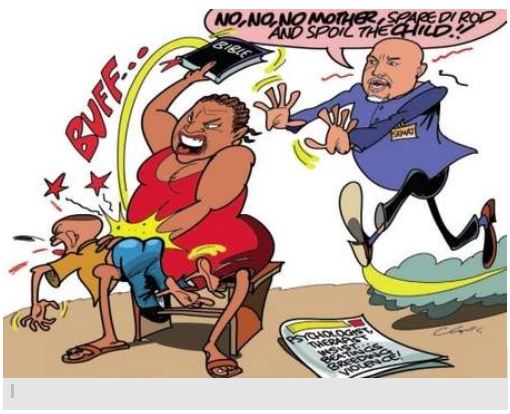
In the midst of heated discussions in the public sphere about the proposed abolition of corporal punishment in Jamaican schools the 12th annual Caribbean Child Research Conference took place under the theme “A World Fit for Children: The UN 2030 Agenda”. This agenda aims to promote a global movement that will ensure that children worldwide are protected from poverty, harm and exploitation, war and disease among other things. It also promises to create an environment that listens to children and allows them to participate in decisions that affect them.
Clearly the world is a long way off from achieving even a quarter of these goals. Still the Sir Arthur Lewis Institute of Social and Economic Studies at the University of the West Indies Mona has been holding a conference annually in which schoolchildren participate alongside adult scholars in presenting their research, thus at least partially fulfilling the mandate about child participation and listening to what they –the primary stakeholders in this conference–have to say.
This year the adult papers ran the gamut from “The Disappearance of Self-initiated Play and Playful Learning from the Early Childhood Landscape: A Guyana Context” by Godryne Wintz to “Exploring the Knowledge of Parents about Child Sexual Abuse within a Jamaican Suburban Community: A Case Study” by Viviene Kerr. The latter explored changes in parents’ knowledge of child sexual abuse within a Jamaican suburban community and was prompted by an increase in sexual abuse cases from a low of 121 in 2007 to a high of 2,671 in 2011 (OCR, 2011).
That is a huge increase by any standards which begs the question has the reportage of such cases increased or has the incidence?
In “Trouble with Neketa: Drama as a Force in Early Childhood Professional Training Programmes” Grace Lambert dealt with the rejection of Creole language or mother tongue in early childhood settings in Guyana. As she pointed out this practice of rejecting children’s home language breaches the UN Convention of the Rights of the Child which promotes the principle of development of and respect for children’s language. More significantly, this practice contradicts developmentally appropriate early childhood learning experiences which dictate that children’s home language is probably the best medium for early interactions. Using a case study approach, Lambert’s research examined the impact of the first Early Childhood Development (ECD) professional development programme offered by the University of Guyana on ECD practitioners’ interaction experiences with Guyanese Creole speaking children. It highlighted how practitioners’ knowledge of language acceptance principles influenced their recognition of Creole as a legitimate way of speaking. The research emphasized the extent to which dramatisation effected change in consciousness and enlightened attitudes to first language recognition.
In “Counselling gender-nonconforming students in Jamaican high schools: The guidance counsellors’ perspective” Halcyon Reid explored how Jamaican high school guidance counsellors treat with gender nonconforming students. The study focused on the factors impacting how they approach service to these students, how their training helps them deal with issues surrounding gender-nonconformity and sexual identity, and actions that may be necessary to improve counselling services to gender nonconforming students. The aim was to identify gaps in the training of guidance counsellors in their preparation to serve sexual minority students and provide recommendations that may lead to a larger study which can inform policies governing guidance and counselling in schools.
The second day of the conference was devoted to child researchers who presented findings from their studies. The subjects were varied as the following titles indicate: An Investigative Study on Trusted Adults who Sexually Abuse Children – Thea-Moy Hill, Westwood High · An Analysis on the Link between Dysfunctional Families and Deviant Children Disability – Sandrene McKenzie, Westwood High · Investigating the Effect of the Zone of Special Operation (ZOSO) on Children in Mount Salem St. James – Aniska Christie, Westwood High.
There was also An Exploration of the Impact of Parental Migration on the Development of Teenagers in Rural Jamaica by Dylan Baker, Westwood High · An Investigation on the Impact of Gang Violence Among Teenagers in Jamaica (Underlying Reasons for Teenage Boys Joining Gangs and the Negative Impact on Jamaica) by Julleyne Sewell, Westwood High and An Investigative Study into the Impact of Gang-Related Sexual Grooming on the Academic Performance of Teenage Girls on the Community of Highgate Gardens by Breanna Julal, Glenmuir High. Ms. Julal won the overall award for the best research study and presentation.
With the elimination of corporal punishment in schools Jamaica will have gone some way towards achieving a world fit for children. Although none of the papers given at the Child Research conference dealt directly with this subject, investigations into abuse and violence dominated the presentations. “If we cannot have a world fit for children, we will not have one fit for adults,” cautions Professor Aldrie Henry-Lee, the conference convenor. Spare the rod and improve the world.


Great initiative. The inclusion of young persons in this conference augurs well for the future
Yes. Actually schoolchildren have been representing themselves at this conference ever since it started…i just happen to have written about it this time. thought the public should know…